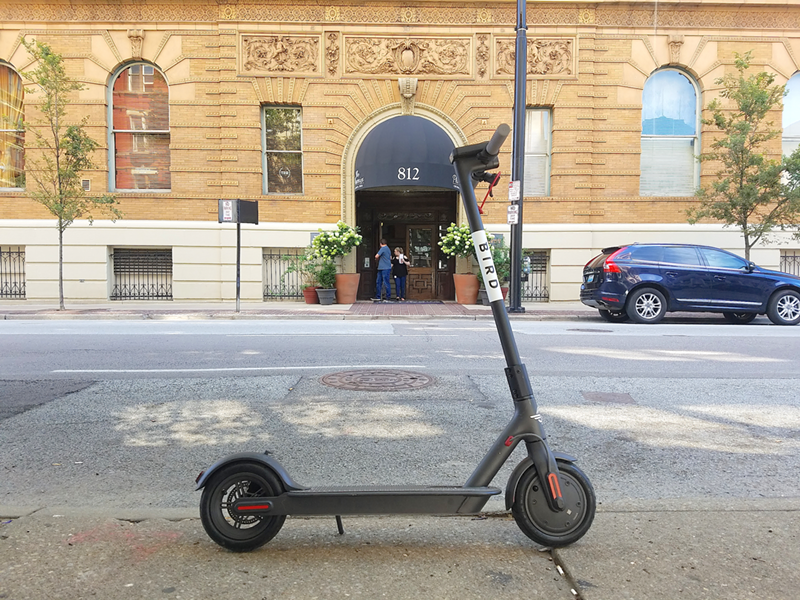The City of Cincinnati has narrowed down proposals for a permanent electric scooter program to three final companies and could decide next month which will be the future of the popular, if sometimes controversial, short-distance transportation options.
Riders can rent the scooters via smartphone and drop them off on the sidewalk without a docking station. They first came to Cincinnati in July 2018, when California-based Bird dropped off a number of the devices unannounced in downtown, Over-the-Rhine and The Banks. Competing scooter company Lime soon followed — as did city regulation.
In August 2018, city officials released interim guidelines for the operation of Bird and Lime. Those included limiting the speed of the scooters to 15 miles per hour, prohibitions on riding them on the sidewalk, insurance and liability requirements holding the city harmless for accidents and a $5,000 one-time fee and $1 per scooter per day payment from the companies to the city. Those agreements, signed with both Bird and Lime, were good for six months. The city has extended them a number of times. The most recent ended in December last year, but another interim agreement good until June 2020 is in the works.
Currently, Bird and Lime are permitted to put the scooters in Clifton, Corryville, CUF, downtown and Over-the-Rhine. Lime also operates scooters on Xavier University's campus.
The city administered a public survey in January last year, which revealed safety and parking concerns as well as demand for the scooters. Afterward, the city solicited bids for a permanent scooter program in October. Six companies responded to the city's Request For Proposals, after which a committee of city staff began reviewing them. That committee has narrowed down the proposals to a final three, though the city hasn't revealed which companies are in the final round.
"Scoring was based on an evaluation of the respondents’ qualifications and experience, business model, revenue sharing model, operations plan (safe ridership and parking, economic inclusion, equity plan, etc.), and any other characteristics of the candidates or the proposals that could provide particular advantages," Cincinnati City Manager Patrick Duhaney wrote in a memo to Cincinnati City Council last month.
After finalists answer questions submitted by committee, the city's chief procurement officer will make a recommendation to the city manager for which program the city should select. The decision could be made by March.


